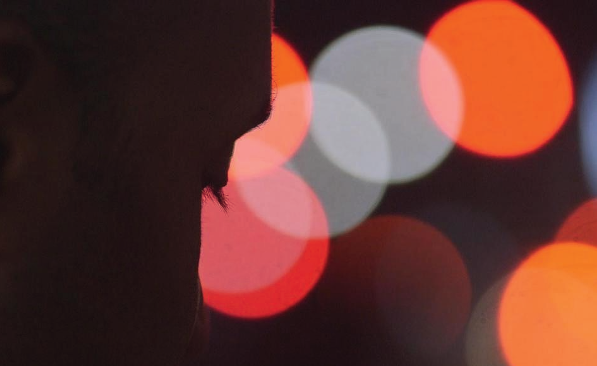Eye For Film >> Movies >> Vision Portraits (2019) Film Review
Vision Portraits
Reviewed by: Jennie Kermode

Talk about blind photographers and most people will still assume it's a joke or a gimmick. A blind person can't really compose a picture, can they? Are people just humouring them? Far from it. As John Dugdale points out in this documentary, we see with more than just our eyes. He can imagine an image as well as anyone - then it's just a matter of working with an assistant to capture it.
John is one of four people whose stories are told in this captivating documentary. Kayla Hamilton talks about her work in dance and the way she relates to space. Ryan Knighton discusses his work as a writer, again reaching out with his imagination as much as his failing eyes. And Rodney Evans directs, as he has on several other occasions, only two of them before he lost his sight. He's a former Sundance award winner and here tells his own story whilst demonstrating his talent. He can compose an image as well as he ever could. As his eye disease has gradually weakened his vision, he has developed more and more compensatory techniques and has refined and developed additional skills in the process.
Full disclosure: when I was 33 years old I had a stroke and suffered severe scarring on my retinas. It has cleared up since but there was no guarantee that it would. In the months after it happened I had to seriously consider my capacity to continue as a film critic. What might I miss? Should I add caveats to my reviews? Looking back, I don't see a big difference in the quality of my work. Perhaps there's only a certain amount that our brains can process and if sight isn't all that it might be, we focus on other things.
Blindness can be experienced in lots of different ways. For me it was briefly complete except for light sensitivity; then the issue was visual noise. The idea that it's always about blackness, nothingness, is given short shrift by the participants in this film. It can just as easily be whiteness, one says - the sense of an abundance of light. Another speaks of seeing what he describes as the Aurora Borealis - constantly shifting, beautiful swirls of colour. There can be visual inspiration in these things. Dugdale's photographs tell stories informed by his blindness. Knighton, meanwhile, talks about how the experience has contributed to his authorial voice.
This doesn't mean that the film wants viewers to put on rose coloured glasses. There's pain in the stories of sight loss; hope for one man in experimental surgery which may give him something back. There are people within disabled communities who rightly caution against what they call 'cure pornography', the selling of the notion that disabled people are given back their lives when they are 'normalised', as if life can't be fulfilling anyway - but Vision Portraits doesn't allow any space for the perspectives of the non-disabled. These are blind people telling their own stories, deciding for themselves what they want out of life and how best to get it.
It's common for blind people to be expected to stay at home and live passive lives, going out only when accompanied by others, forgetting about their ambitions and even their sexuality. Nobody here has time for that nonsense. There are, however, some entertaining stories about mishaps experienced in navigating the world and interacting with other people. The acceptance that crazy things happen to everybody once in a while gives the film an upbeat tone that speaks to lives pursued with passion. This isn't just an inspiration ticket - it's a series of portraits of people who would be interesting and enjoyable to be around whether they were blind or not. It demolishes myths without bitterness and invites viewers to share a broader perspective on creative art. To put it simply, it will open your eyes.
Reviewed on: 06 Oct 2019














